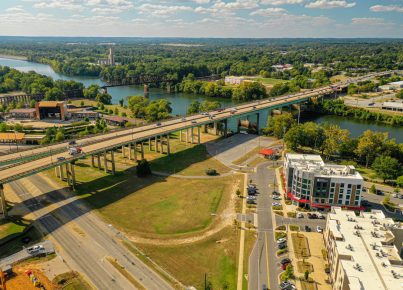Introduction
Education is a continuum, and children need an aligned, high-quality educational experience from cradle to career. The journey through PreK-12 education builds the foundation for a lifetime of learning and growth. During this critical period of rapid brain development, young learners acquire not just academic knowledge, but also essential life skills, social-emotional competencies, and critical thinking abilities that will serve them throughout their lives.
This comprehensive guide explores 100 essential things that students should learn throughout their PreK-12 educational journey. These skills, concepts, and knowledge areas are organized by developmental stages, recognizing that what students need to learn looks different at various points in their educational journey. At Bennett Day School and other progressive educational institutions, authentic assessment evaluates students’ abilities to apply what they have learned to real-life situations, fostering critical thinking, problem-solving, and creativity—essential skills for success in higher education and the workforce.
Early Childhood Education (PreK-Kindergarten)
Foundational Skills
- Basic Language Skills: Developing vocabulary, listening comprehension, and the ability to express thoughts and feelings verbally.
- Pre-literacy Skills: Recognizing letters, understanding that print carries meaning, and developing phonological awareness.
- Numeracy Foundations: Counting, recognizing numbers, understanding one-to-one correspondence, and basic concepts of more/less.
- Fine Motor Skills: Developing the ability to use fingers and hands precisely for tasks like holding crayons, cutting with scissors, and buttoning clothes.
- Gross Motor Skills: Mastering fundamental movement skills like running, jumping, climbing, and balancing.
- Creative Expression: Exploring various art forms, music, movement, and imaginative play as means of self-expression.
Social-Emotional Development
- Emotional Literacy: Identifying and naming emotions in themselves and others.
- Self-regulation: Learning to manage emotions and behaviors appropriately in different situations.
- Empathy: Recognizing and responding to the feelings and needs of others.
- Conflict Resolution: Developing basic strategies for resolving disagreements without aggression.
- Independence: Building self-help skills like dressing, cleaning up, and following simple routines.
- Cooperation: Learning to share, take turns, and work together with peers.
Cognitive Development
- Curiosity: Developing a sense of wonder and the desire to explore and learn about the world.
- Observation Skills: Noticing details, patterns, and changes in the environment.
- Basic Scientific Thinking: Making simple predictions, testing ideas, and drawing conclusions.
- Problem Solving: Finding solutions to simple challenges through trial and error.
- Attention and Focus: Building the ability to concentrate on tasks for increasing periods of time.
- Memory Skills: Developing strategies for remembering information and instructions.
Health and Safety
- Body Awareness: Knowing body parts, personal boundaries, and appropriate versus inappropriate touch.
- Hygiene Practices: Understanding the importance of handwashing, dental care, and personal cleanliness.
- Nutrition Basics: Recognizing healthy food choices and understanding why our bodies need nutritious foods.
- Safety Rules: Learning basic rules for staying safe at home, at school, and in the community.
Elementary School (Grades 1-5)
Language Arts
- Reading Fluency: Developing the ability to read accurately, smoothly, and with appropriate expression.
- Reading Comprehension: Understanding, analyzing, and connecting with texts of increasing complexity.
- Writing Skills: Mastering handwriting, spelling, grammar, and the ability to express ideas in written form.
- Communication: Building speaking and listening skills for effective interpersonal exchanges and presentations.
- Research Skills: Learning to locate, evaluate, and use information from various sources.
- Literary Analysis: Understanding story elements, different genres, and making inferences from texts.
Mathematics
- Number Sense: Developing deep understanding of numbers, place value, and operations.
- Basic Operations: Mastering addition, subtraction, multiplication, and division.
- Fractions and Decimals: Understanding part-whole relationships and decimal notation.
- Measurement: Learning to measure length, weight, capacity, time, and temperature using standard units.
- Geometry: Recognizing and describing shapes, symmetry, and spatial relationships.
- Data and Statistics: Collecting, organizing, and interpreting simple data sets.
Science
- Scientific Method: Understanding the process of asking questions, making predictions, conducting experiments, and drawing conclusions.
- Life Sciences: Learning about living things, their characteristics, habitats, and life cycles.
- Physical Sciences: Exploring matter, energy, forces, and simple machines.
- Earth and Space Sciences: Understanding weather, seasons, the water cycle, and basic astronomy.
- Environmental Awareness: Developing knowledge about ecosystems, conservation, and human impact on the environment.
- Engineering Design Process: Learning to define problems, generate solutions, test and improve designs.
Social Studies
- Community Awareness: Understanding the structure and function of neighborhoods, cities, and local government.
- Cultural Diversity: Appreciating differences in cultures, traditions, and perspectives within society.
- Historical Thinking: Developing chronological understanding and recognizing how the past shapes the present.
- Geography Skills: Using maps and globes to understand the physical and human characteristics of places.
- Civic Responsibility: Learning about rights, responsibilities, and participation in a democratic society.
- Economic Concepts: Understanding needs versus wants, goods and services, and basic concepts of money.
Arts and Creativity
- Visual Arts: Exploring various media, techniques, and styles for artistic expression.
- Music Appreciation: Developing the ability to listen to, respond to, and create music.
- Performing Arts: Participating in drama, dance, and other forms of creative expression.
- Design Thinking: Learning to identify needs, brainstorm solutions, and create innovative designs.
Physical Education and Health
- Physical Fitness: Building strength, flexibility, endurance, and coordination through regular exercise.
- Team Sports: Learning the rules, strategies, and sportsmanship involved in group athletic activities.
- Individual Sports: Developing skills in activities that can be pursued individually throughout life.
- Nutrition Knowledge: Understanding balanced diets, food groups, and making healthy eating choices.
- Growth and Development: Learning about how bodies grow and change during the elementary years.
- Mental Health Awareness: Developing basic understanding of emotional well-being and stress management.
Technology and Digital Literacy
- Basic Computer Skills: Learning to use digital devices, navigate interfaces, and use applications.
- Digital Citizenship: Understanding appropriate online behavior, privacy, and safety.
- Information Literacy: Developing the ability to find, evaluate, and use digital information responsibly.
- Introduction to Coding: Learning the basics of computational thinking and simple programming.
Middle School (Grades 6-8)
Advanced Literacy and Communication
- Critical Reading: Analyzing complex texts, identifying bias, and evaluating arguments.
- Persuasive Writing: Crafting well-reasoned arguments supported by evidence.
- Media Literacy: Critically analyzing messages from various media sources and understanding their influence.
- Public Speaking: Developing confidence and skills in presenting to groups.
- Foreign Language Foundations: Building basic proficiency in a second language.
Mathematical Thinking
- Algebraic Concepts: Understanding variables, equations, and mathematical modeling.
- Proportional Reasoning: Making connections between ratios, proportions, percentages, and real-world applications.
- Statistical Literacy: Collecting, analyzing, and drawing conclusions from data.
- Geometric Reasoning: Applying properties of shapes and spatial relationships to solve problems.
- Mathematical Problem Solving: Developing strategies for approaching complex, multi-step problems.
Scientific Inquiry
- Advanced Scientific Practices: Designing investigations, collecting and analyzing data, and constructing explanations.
- Systems Thinking: Understanding how parts interact within biological, physical, and social systems.
- Human Biology: Learning about body systems, health, and disease prevention.
- Chemical Interactions: Understanding the properties of matter and how substances combine and change.
- Energy Transfer: Exploring different forms of energy and how they transform from one form to another.
Social Understanding
- Historical Analysis: Examining primary sources, understanding different perspectives, and analyzing cause and effect in historical events.
- Global Awareness: Developing knowledge of world geography, cultures, and international relationships.
- Civics and Government: Understanding the structure and function of government at local, state, and national levels.
- Economic Systems: Learning about different economic models, supply and demand, and personal financial literacy.
- Social Justice: Developing awareness of equity, discrimination, and the importance of inclusive communities.
Personal Development
- Identity Formation: Exploring personal values, strengths, interests, and cultural identity.
- Decision Making: Learning to make responsible choices and understand their consequences.
- Time Management: Developing strategies for organizing and prioritizing tasks and responsibilities.
- Study Skills: Mastering techniques for effective learning, note-taking, and test preparation.
- Goal Setting: Learning to set realistic short and long-term goals and create plans to achieve them.
Digital Competency
- Digital Creation: Producing original content using various digital tools and platforms.
- Collaborative Technology: Using digital tools to collaborate effectively with others.
- Research and Evaluation: Developing skills to find, evaluate, and synthesize information from digital sources.
- Ethical Technology Use: Understanding intellectual property, digital footprints, and ethical considerations in technology.
High School (Grades 9-12)
Advanced Academic Skills
- Research Methodology: Conducting in-depth research, evaluating sources, and synthesizing information.
- Critical Analysis: Examining complex issues from multiple perspectives and forming reasoned judgments.
- Creative Problem Solving: Applying innovative approaches to address challenging problems.
- Interdisciplinary Thinking: Making connections across different subject areas and domains of knowledge.
- Academic Writing: Crafting sophisticated essays, research papers, and other formal written works.
Life and Career Preparation
- Financial Literacy: Managing personal finances, understanding credit, banking, taxes, and investments.
- Career Exploration: Investigating potential career paths aligned with personal interests, values, and abilities.
- Entrepreneurship: Understanding business principles and developing innovative, solution-oriented mindsets.
- College and Career Readiness: Preparing for post-secondary options through planning, applications, and transition skills.
- Workplace Skills: Developing professionalism, collaboration, leadership, and other essential workplace competencies.
- Lifelong Learning: Cultivating the mindset, motivation, and skills for continuous learning throughout life.
Conclusion
The PreK-12 educational journey is a critical period that shapes not just what students know, but who they become as thinkers, citizens, and human beings. Progressive education values the development of the whole child—academically, socially, and emotionally—recognizing that each child is unique, with their own interests, passions, and ways of learning.
By focusing on these 100 essential areas of learning, educators and parents can help ensure that students develop not just academic knowledge but also the skills, mindsets, and competencies needed to thrive in an increasingly complex and rapidly changing world. The most effective educational approaches go beyond traditional assessments and the “banking system” of education, instead creating environments where students are seen as capable and competent, with limitless potential for growth and development.
Education is indeed a continuum, and the experiences and learning opportunities provided throughout the PreK-12 years build the foundation for a lifetime of learning, growth, and success. By attending to the whole child and providing rich, authentic learning experiences across these essential areas, we can help prepare the next generation to face the challenges and opportunities of the future with confidence, creativity, and compassion.





